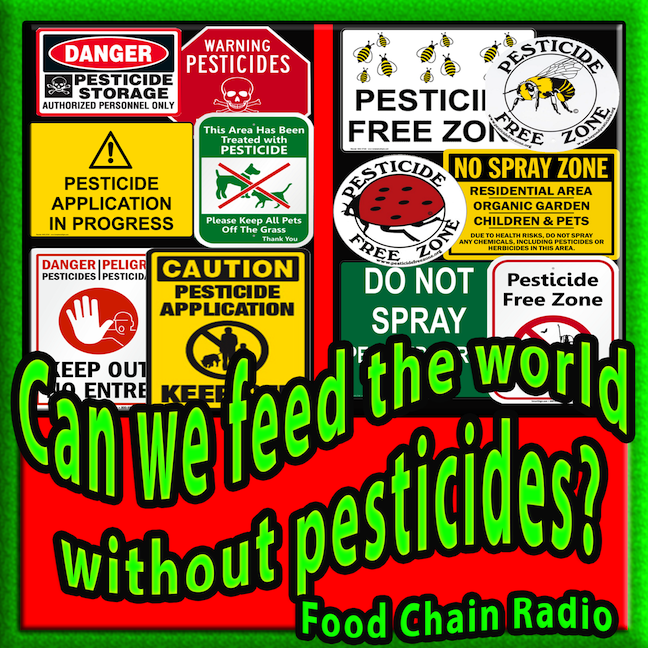
The Right to Food
March 23, 2017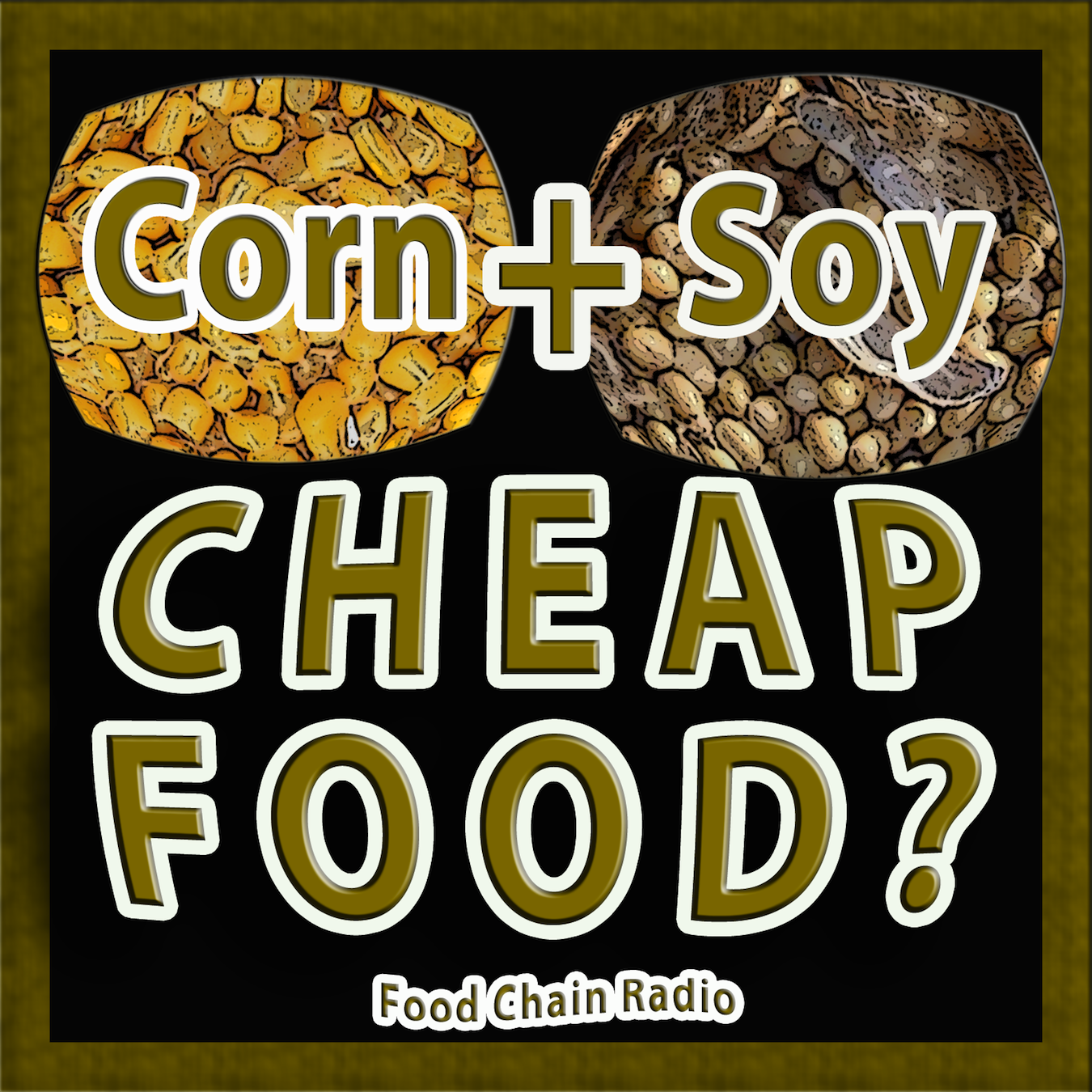
Cheap Food
April 6, 2017Food Chain Radio Show #1098
Michael Olson, Author & Urban Farming Agriculturalist
Pesticides & The Future of Food
Guests: Open Mic Audience Participation
As host of the Food Chain Radio, I am like a big fat trout lying at the bottom of a deep pool as insects float gently past on the surface.
Having become rather picky over the years, I do not rise for every story that floats by, only those in hatch– seasonal eating!
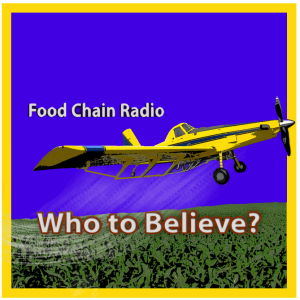
Michael Olson Food Chain Radio – Can we feed the future without using pesticides?
Many of the stories that are now in hatch relate to the use of pesticides to grow our food. And if you scroll through recent Food Chain archives you will see a bunch of them.
At the core of these stories is the insistence, by some, that we must use pesticides to feed our future. Without pesticides, they say, many of the world’s peoples will not have a future. If you pause for a moment to look at the production systems used by these people to grow food, you will see they do have a point, as those systems would likely not produce food without pesticides.
On the other side of this story is the insistence that we must stop using so many pesticides, or there simply will be no future for anyone. If you pause for a moment and consider how much, and how many, pesticides are now being used to grow our food, and how the residues of those pesticides are now being found in the environment, and in our food, and in our bodies, you will see that they, too, have a point.
So, who do we believe is right about our future? Tough call… let’s consider a couple of examples to see why its so hard to make the call…
The Environmental Working Group (EWG) has released its annual list of Dirty Dozen foods contaminated with pesticide residues. Right up there at the top, again, is the strawberry.
EWG points to United States Department of Agriculture tests conducted in 2014 and 2015 that show 99% of the strawberries to contain pesticide residues, with the average sample containing 7.7 different pesticides and one sample contained 21 different pesticides. USDA found 74 different pesticides in various combinations in its strawberry sampling, 88% of which came from the U.S. and the remaining from Mexico.
But an industry trade group, the Alliance for Food and Farming, claims the Working Groups Dirty Dozen is built on bad information, and that it has a website full of peer reviewed studies that say strawberries and other fruits and vegetables grown with pesticides are good and safe to eat.
Who to believe?
Or consider glyphosate, the active ingredient in the weed-killer Roundup. Many of the nation’s major commodity crops, especially those that have been genetically modified, have been sprayed with glyphosate. In fact, if you look at a usage chart, you will see that the nation’s heartland has been literally drenched in glyphosate. As a consequence, glyphosate residue is now in found just about everything– from the waters in our rivers and lakes, to our breakfast cereals, to our vaccines, to the milk of our nursing mothers. Glyphosate is everywhere!
The Monsanto Corporation says glyphosate is safe, and has submitted papers that have convinced the Environmental Protection Agency to increase the amount of glyphosate allowed in the human body. But the World Health Organization says glyphosate is a probable cause of cancer in humans, and has studies in hand to prove its case. In a lawsuit filed against the State of California, which wants glyphosate to be listed as a carcinogen, it was discovered that Monsanto’s own scientists had written parts of the report that convinced the EPA to approve glyphosate’s use.
Who to believe? Today, the call is yours…
Leave a comment below: Should we believe those who say we must use pesticides to feed the future?
Tune in here, for the syndicated Food Chain Radio Show #1098 April 1, 2017 Saturday 9AM Pacific

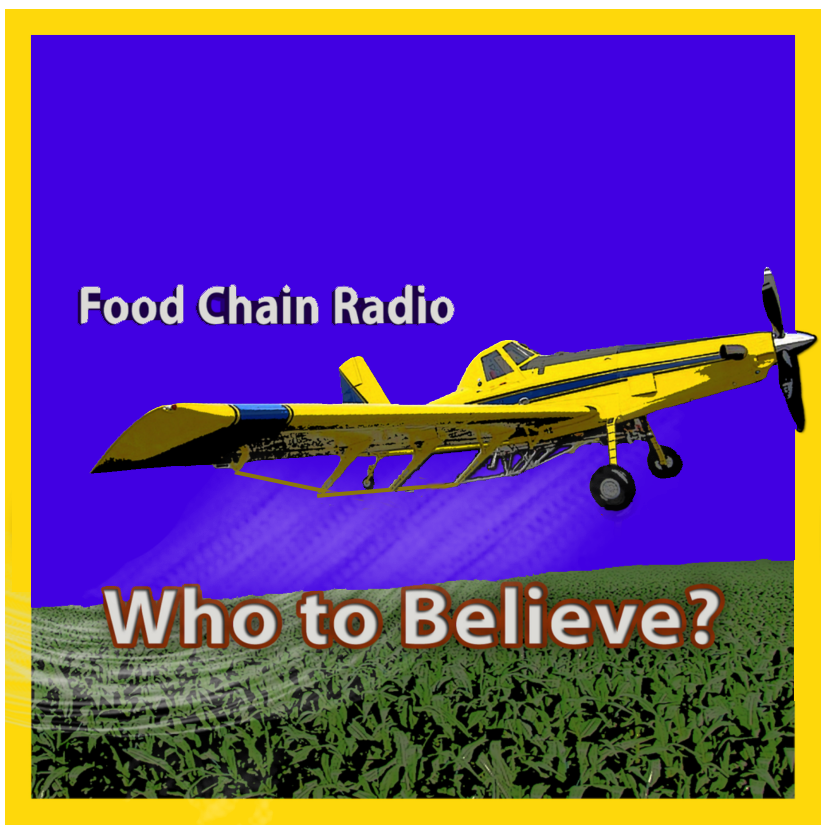


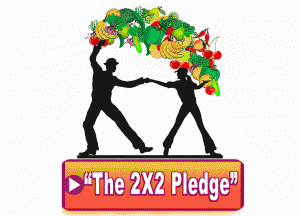
2 Comments
No, pesticides are not safe for the environment, humans, the planet. We farm organically, because we believe the harm outweighs the good and the long-lasting detriment caused by pesticides is irreversible.
But I think that placing all the onus on conventional farmers asks too much: All citizens must be asked to carry the weight: not use roundup at home, on open spaces, on golf courses… and to live with the weeds in their yards. All must be willing to pay what it actually costs to grow food with the planet’s sustainability as a priority.
Pesticide is a very broad term referring to any material used to control a target pest. So B.t., a biopesticide made from a naturally occurring soil microbe, is lumped in with DDT. I think the question “do we need pesticides” is in itself misleading. Do we need crop protection in most of our commercial ag production? Yes. Long time certified organic apple growers I work with use some sort of pesticide every year to control codling moth, an exotic pest that has spread with apple. They use mating disruption (a pheromone), virus (a natural virus that attacks the insect larva), B.t., horticultural oil, sometimes Entrust (another biopesticide made from a natural microbe). Without control, codling moth will damage up to 95% of the fruit, producing fruit that consumers will not buy (the worm in the apple) and rendering the operation unsustainable financially. So I think the question might be better put, When we need to protect our crops from pests, what are the options, when are pesticides a suitable choice, and which pesticide is most effective against the pest with the fewest undesirable effects.